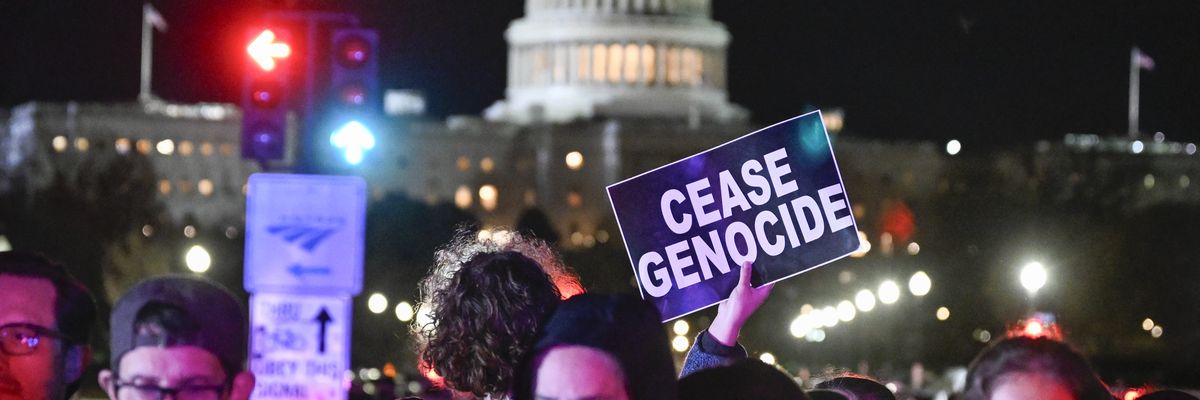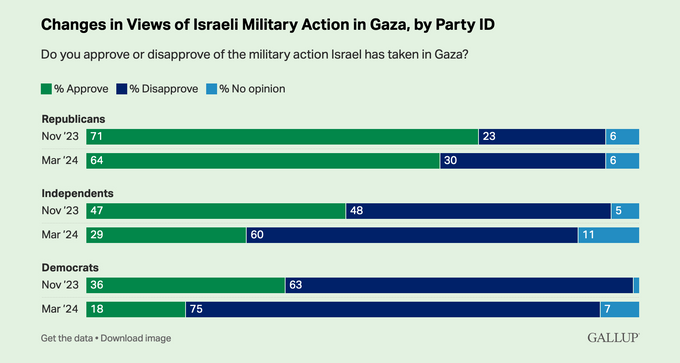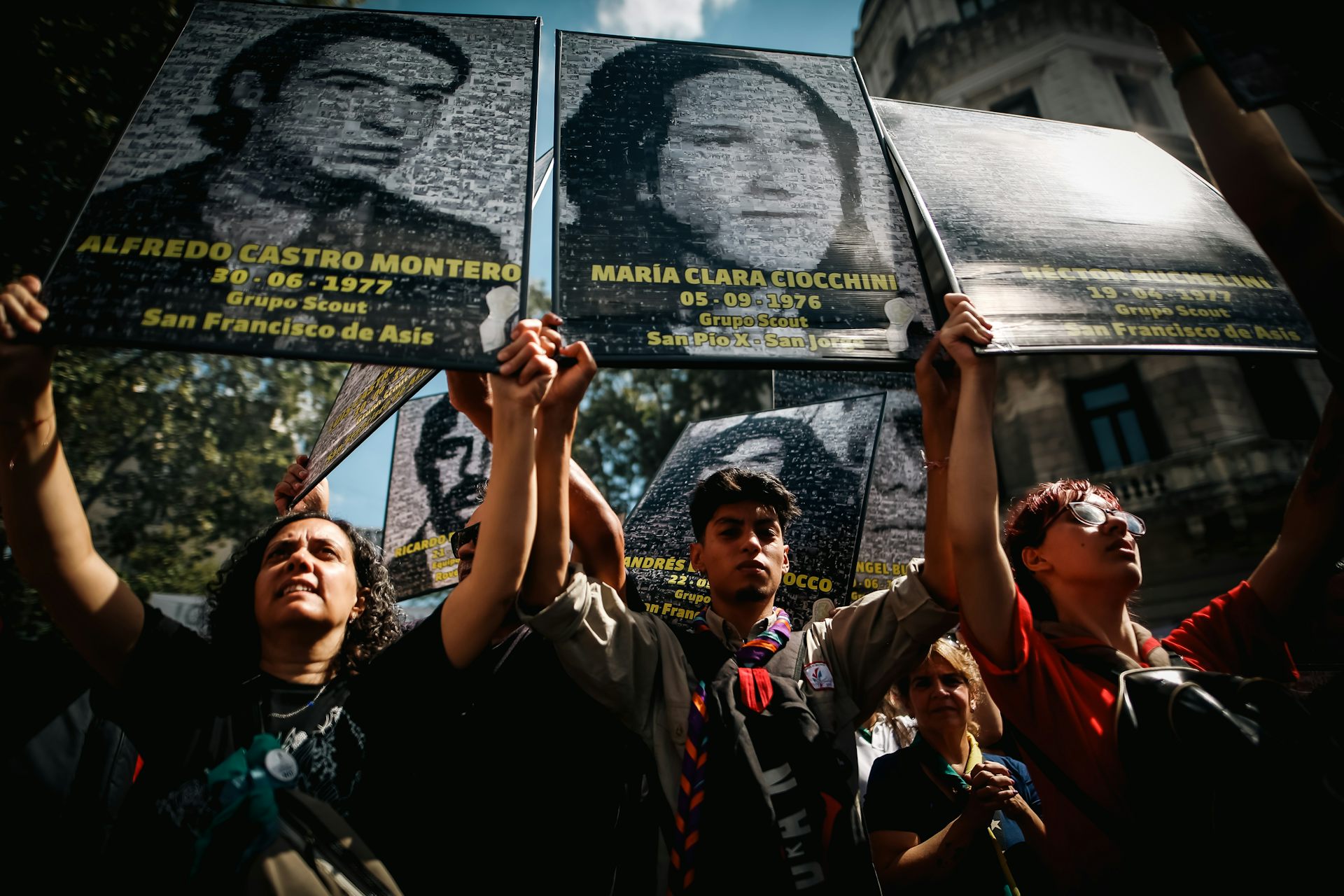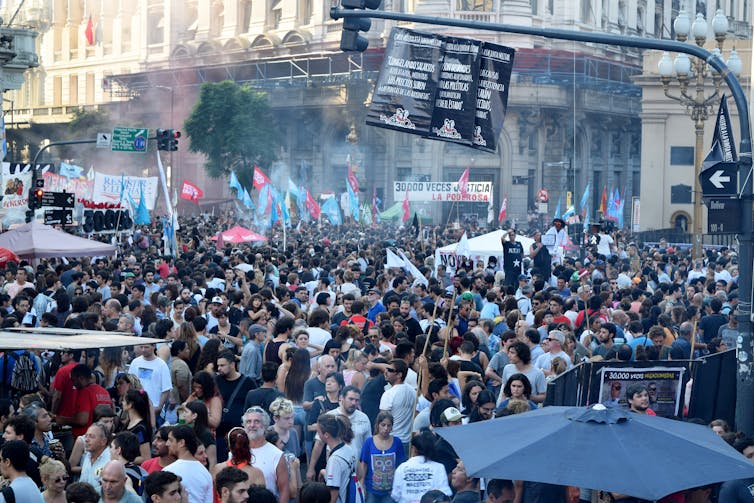What’s really behind Germany’s unshakeable support of Israel?
Original article by Matthew Read republished from peoples dispatch under a Creative Commons Attribution-ShareAlike 4.0 (CC BY-SA) license.

To understand Germany’s unconditional support for the Israeli genocide, one must understand the origins of the German state
The extent of the German government’s support for Israel during its ongoing offensive in Gaza has taken many by surprise. German Chancellor Olaf Scholz has been even more restrained in his criticisms of Tel Aviv than US President Joe Biden. A central point of reference for German politicians is the notion of Staatsräson (“state reason”). This was a term first coined in an essay by Germany’s former ambassador to Israel, Rudolf Dreßler, in the early 2000s and repeated by Angela Merkel in a speech before the Knesset in 2008. It has since become a centerpiece of German public statements and an ideological tool to legitimize Israel’s “right to self-defense”. As Scholz said on 12 October 2023: “At this moment there is only one place for Germany. We stand with Israel. …This is what we mean when we say, Israel’s security is Germany’s Staatsräson.”
In this context, a growing number of nations from the Global South have begun to challenge Germany for whitewashing and even justifying the genocide of the Palestinians. In January 2024, Namibia’s late president Hage Geingob released a statement strongly criticizing Germany for its uncritical defense of Israel and emphasizing that the German government was now actively supporting a genocide in Palestine whilst it has still not atoned for its genocide against the Herero and Nama in Namibia (1904-1908). For similar reasons, the Nicaraguan government is now taking Germany to the International Court of Justice for aiding and abetting the Israeli genocide in Gaza.
To understand what lies behind Germany’s Staatsräson and its bilateral relationship with Israel, it is necessary to understand the origins of the current German state and the tradition in which it stands.
The historical context
The Federal Republic of Germany (FRG, commonly referred to as “West Germany” during the Cold War) was founded in May 1949. In a similar way to South Korea and Taiwan, the FRG was created after the Second World War under the wing of the USA to act as a bulwark against socialism. As a central actor in the West’s “containment” and “rollback” strategies, the West German state had to be both aggressive towards the socialist East and docile towards the capitalist West. The influence of the corporations that had funded Hitler was thus intentionally restored and the businessmen with ties to the Nazi party were unofficially pardoned for their role in fascist Germany’s crimes against humanity, despite often directly profiting from forced labor during the Third Reich (e.g., Daimler, Siemens, Rheinmetall, etc.). At the same time, the FRG was tightly bound into the US-led order through the Marshall Plan and the North Atlantic Treaty Organization (NATO), which to this day includes the stationing of tens of thousands of US troops in Germany.
The leaders of the young FRG were immediately confronted with the problem of how to publicly address the Holocaust. Pictures of concentration camp inmates sent shock waves around the world and gave rise to the international call: Never again! Yet domestically, West Germany could not afford a thorough denazification of society, for this would destabilize the capitalist basis of the FRG as it had done in East Germany, where Nazi war criminals and businessmen had been rigorously expropriated. Thus, rather than addressing the economic roots of fascism and prosecuting sections of the ruling class for abetting Hitler, conservatives and liberals in the FRG fostered a narrative of collective German guilt that all citizens would have to atone for. It was not capitalism and the liberal system of the Weimar Republic (1918-1933) that had enabled the rise of fascism, but the cultural propensities of the German people.

This political strategy has been evident in West Germany’s support for the state of Israel, which had been founded one year prior to the FRG. The first West German chancellor, Konrad Adenauer, had publicly described the FRG’s first reparation agreement with Israel in 1952 as being “based on a compelling moral obligation”. In the face of domestic criticism over the three-billion-marks agreement – particularly from the Liberal Democratic party (FDP) and from his own Christian Democratic Union party (CDU) – Adenauer announced that “there are higher values than good business.” Yet, recently uncovered documents from the German Foreign Office reveal that Adenauer was in fact only “willing to negotiate reparations [with Israel] due to pressure from the USA”. The chancellor had referred to West Germany’s relationship with the USA and said that “breaking off negotiations with Israel without results would create the most serious political and economic dangers for the Federal Republic”.
In other words, it was stipulated by the USA that if the FRG wanted to become a powerful player in European politics again, it would have to provide significant political, economic, and military support to the state of Israel. While there was considerable domestic discontent over this precondition in the beginning, the leaders of the FRG have come to appreciate relations with Israel as conducive to their own interests, both in terms of geopolitical strategy and profitable ventures for German industries.
For instance, arms sales to Israel have skyrocketed in recent years; Siemens regularly profits from Israeli contracts, such as the 2018 tender by Israel Railways that was worth roughly one billion euros; and German drugmaker Merck (the founding family of which were staunch Nazis) also maintains research sites and projects worth millions across Israel. In the face of horrific images coming out of Palestine, the German media will justify the export of arms and capital to Israel by uncritically repeating the official government line: “In the past, Germany has above all supplied submarines to Israel and also subsidized exports with taxpayers’ money. The background to this is that Germany has declared Israel’s security to be Staatsräson in view of the murder of six million Jews by Nazi Germany.”
Concepts such as Staatsräson and collective German guilt have thus been developed as ideological instruments to both deflect responsibility from the German capitalist class for Nazi war crimes in the past and disguise the brutal pursuit of their economic and political interests in West Asia in the present day. This helps the German government to create extremely narrow confines for the public debate around these policies. Since October 7, Staatsräson has also been employed to drastically intensify anti-migrant measures. The most brazen of these is perhaps a new decree in the state of Saxony-Anhalt, where applicants for German citizenship will now have to pledge allegiance to Israel’s “right to exist”.
The Global South challenges German hypocrisy
While the FRG’s unconditional support for Israel is nothing new, it has come into the limelight as an increasing number of states from the Global South are speaking out against the Israeli genocide.
In the German press, commentators scrambled to delegitimize South Africa’s case against Israel at the International Court of Justice (ICJ) as “blatantly one-sided”. Responding to South Africa’s case, German Minister for Economic Affairs Robert Habeck (Greens) simply brushed it aside: “Accusing Israel of genocide, in my view, is a complete reversal of victims and perpetrators, and is just wrong.” Here, again, the role of the German capitalist class in fueling Nazism is conflated with a “special historical responsibility” that all Germans share towards Israel: “Due to the darkest chapters of our history, Germany has to live with the terrible responsibility for genocide perpetrated in its name. […] Nazi Germany committed one of the worst crimes in human history, the Holocaust against Jews in Europe. Bearing all of this in mind, we think that self-defense against a terrorist regime that hides behind the civilian population as human shields to maximize suffering and to render defense against its actions impossible, is not genocidal intent.”
Such arguments continue to sway a large section of the German population, but leaders in the Global South are less susceptible and have begun to challenge the German government’s hypocrisy. The first serious accusation came at the beginning of 2024, when Namibia’s then president Hage Geingob published a statement reminding the world that Germany had “committed the first genocide of the 20th century in 1904-1908, in which tens of thousands of innocent Namibians died in the most inhumane and brutal conditions.” Implicitly turning German Staaträson on its head, Geingob argued that by intervening at the ICJ “in defense and support of the genocidal acts of Israel”, the FRG has in fact revealed its “inability to draw lessons from its horrific history”.
In early March 2024 the next public challenge from the Global South came: Nicaragua filed a new case in the ICJ, this time directly against Germany, accusing Berlin of violating its obligations to the “Genocide Convention” of 1949. Through its political, financial, and military support to Israel and by defunding the United Nations Relief and Works Agency for Palestine Refugees in the Near East (UNRWA), “Germany is facilitating the commission of genocide and, in any case has failed in its obligation to do everything possible to prevent the commission of genocide”. German liberals were quick to write this case off as “a cheap diversionary tactic […] by a dictatorship that denies its own citizens any guarantees under the rule of law”.
Yet just several weeks later, the German government was once again publicly condemned, and this time it did not come from the “autocratic, left-wing governments” in Latin America, but from a hitherto close ally, Malaysia. At a joint press conference in Berlin, Malaysian Prime Minister Anwar Ibrahim responded to Scholz’s continued insistence on Israel’s right to self-defense by provocatively asking, “Where have we thrown away our humanity? Why this hypocrisy? Why this selective and ambivalent attitude towards one race?”
These developments are the latest signs that the West’s ideological and economic hegemony is faltering. Concepts such as the “rules-based international order” and Germany’s Staatsräson no longer hold enough weight to silence dissent internationally. An expression of the “new mood” in the Global South is the struggle over the ownership of international bodies such as the ICJ.
The west undermining its own ideological hegemony
The Federal Republic of Germany stands in the tradition of German capitalism, with all of the skeletons hiding in its closet. Its unconditional support for Israel is the product of, on the one hand, self-seeking economic and geopolitical interests in the region and, on the other, the effort to deflect responsibility for the holocaust and the unwillingness to denazify West German society. The other Germany – the German Democratic Republic (GDR) – stood in a very different tradition. It was governed by the communists and social democrats that had languished in exile or Hitler’s concentration camps during the Third Reich. There, the demand “Never again!” was understood not as collective guilt to be carried by all Germans, but as a militant duty to combat fascism and racism, regardless of the specific form they took. As such, the GDR was a staunch support for the Palestinian’s right to self-determination and resistance to occupation.
In Germany today, the space for public debate on this issue is becoming increasingly narrow. Support for Palestine is being censored or outright banned. Yet the German government cannot so easily silence Global South states. As it continues to travel from country to country, incessantly justifying the Israeli genocide in Gaza while propagating the notion of “feminist foreign policy”, the German government is rapidly undermining the West’s ideological hegemony and exposing its own hypocrisy to the world.
Matthew Read is a researcher with the Zetkin Forum based out of Berlin.
Original article by Matthew Read republished from peoples dispatch under a Creative Commons Attribution-ShareAlike 4.0 (CC BY-SA) license.




